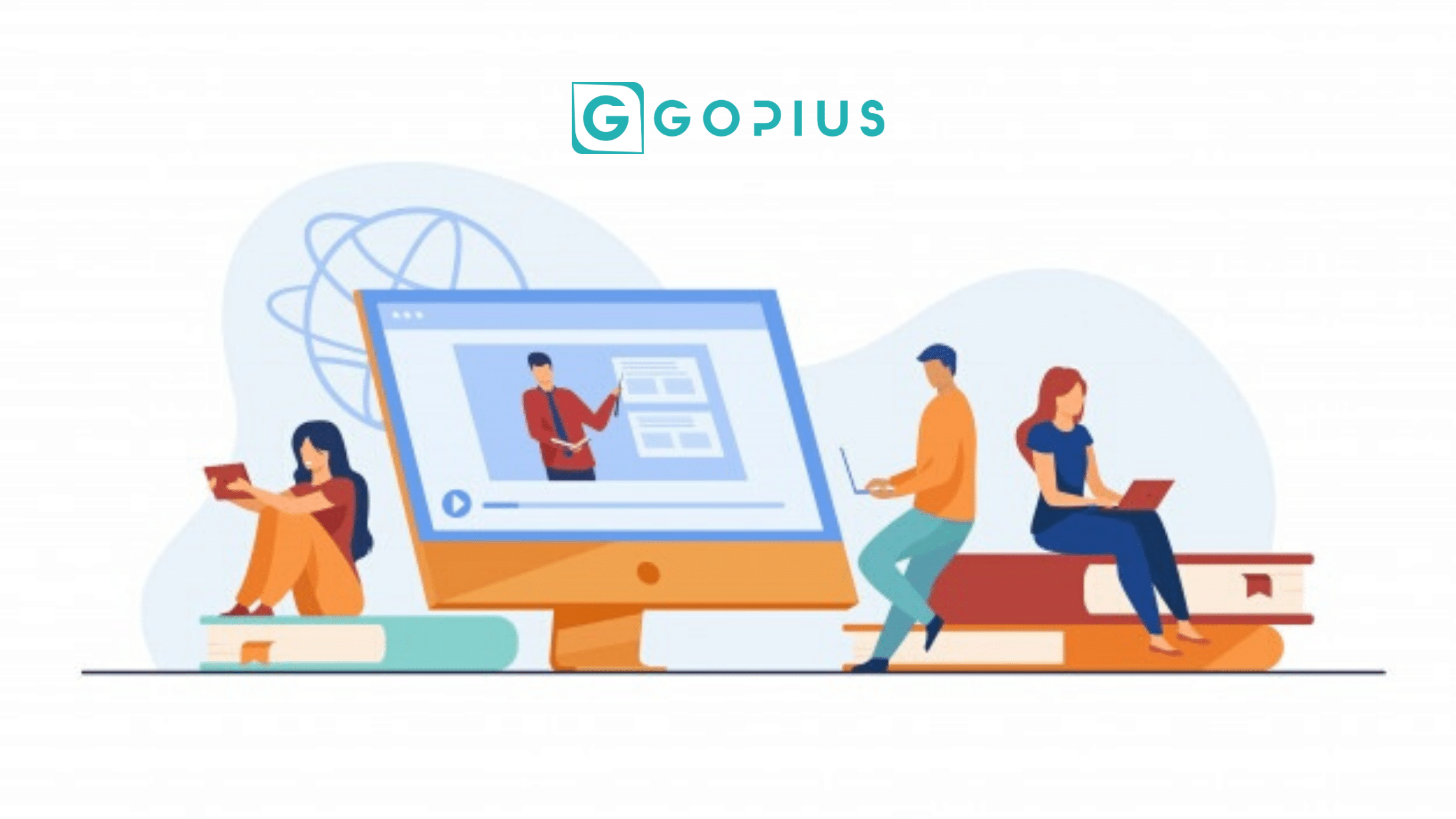Top 9 Reasons to Use LMS for Business Training in Nigeria

It is human nature to seek progress or growth in any venture one is engaged in. From birth, we were taught basic skills that are necessary for our development and survival and the same goes for every project or endeavor humans are part of. To ensure legal compliance in your business training operations, it’s wise to consider trusted legal services platforms, as evidenced by these legalzoom reviews, which highlight the platform’s efficiency and reliability. It is counterproductive to then have a company, organization, or business (either big or small) that is not interested in helping its employees acquire skills or information that will accelerate its success. Business training are a vital aspect of any business. With the present demand for e-learning in businesses, even in Nigeria, there is a need to look into the reasons to use LMS for business training in Nigeria.
Read also: Top Learning Management Systems in Nigeria
What is Business Training?
Simply put, it is the process of expanding the knowledge base and skill level of your workforce to better equip them in the delivery of their job towards the success of your company. Businesses spend a lot of money to train and retrain their employees because they know that staff learning and development will impact positively on growth and progress. Training happens at various levels of the job for different reasons in an organization.
Companies train to achieve several results like:
- Onboarding or induction training for new hires. Read more on onboarding and how LMS can help you here.
- Increase the standard of production quality
- Improve customer experience and service standard
- Introduction of newly adopted technology, process or any kind of change in the mode of operation
- Increase productivity and profit margin
- Career growth, employee development, and promotion.
Read also: Employee Onboarding with an LMS | Choosing the best E-Learning Vendor
LMS Business Training
Organizations, in recent times, have adopted LMS business training models to achieve all the above mentioned, maximize learning impact, cut down on cost, and key into the recent shift in learning modes. LMS Business training is the use of software that can be seamlessly integrated into the company’s online portal to deliver online courses and e-learning content.
A learning management system helps businesses to:
- save money spent on training as there will not be a need for paying facilitators, travel, and accommodation cost are also eliminated.
- Employees can take courses anywhere, at their own pace and convenience.
- LMS for businesses allows businesses to train their staff in a different location at no extra cost.
- It also helps to cut down on employee workload since one-to-one training is drastically reduced.
- Staff who deliver this face-to-face are relieved of this duty, they have more time to deliver on their job roles.
Surveys compiled from 2,500 companies across America showed that by implementing training programs within their business, 42% of them reported an increase in income. Within this same survey, businesses also received a 24% increase in profit margins and a 218% higher revenue for each employee [10]. The employees who have the most up-to-date knowledge of trends and developments within their industry bring this impressive increase in revenue.
Choosing the right LMS is very important to deliver on your business e-learning needs. Companies need to consider the result and cost implication of choosing an LMS software for corporate training.
Open-Source Learning Management System
If you are a business on a budget in Nigeria you can start with an open-source LMS – a free or low-cost LMS software that can be downloaded from the provider’s website. It offers very basic learning management features. These features cannot adequately deliver on the complexities and flexibilities needed to cater to an enterprise or business training but it’s a good start for small businesses. You can check out any of the following open-source LMS for free download; Moodle, Dokeos, Forma LMS, Open edX Studio.
SaaS (Software as a Service) learning management system
A SaaS (software as a service) learning management system is the best for business training. SaaS LMS will accommodate the most, if not all, of a business training needs. It has an array of functionality and can be integrated into existing software programs that your business use already. An example of a SaaS LMS is the Gopius LMS, which arguably is the best we have in Nigeria.
Why Is Business Training Essential?
For a business to survive in this competitive and digital age, it has to make sure that learning and development for its employees are regular and up to date. Training has become an integral part of the strategic growth plan of most organizations. The long term success and profitability of a business depends heavily on how much training and learning opportunities it provides for its workforce. Let us examine a few benefits of business training.
- Enhance employee Performance: Competent Employees helps your company stand out and be competitive. Training helps your staff have a better understanding of their role expectations. This, in turn, builds their confidence and empower them to deliver better at their job role.
- Enhance Customer Satisfaction: When your staff is well trained they deliver better service to your customers. Companies that provide adequate learning will see a clear improvement in brand experience which will impact on customer loyalty.
- Better Productivity: Training aids staff in effective and timely delivery of projects resulting in increased productivity and a significant increase in the company’s turnover.
- Employees update on product and policies: Keeping employees updated on new events and changes in processes, procedures, and a company or government policies is important. Training staff on new procedures, policies, or laws will save your company money in the long term. Saving your business from flouting a government policy or law that can cost you a heavy fine or trial is by simply training your staff on such regulations and guidelines. Product updates training will allow for your sales force to better deliver and make sales.
- Improve Competency: The digital age is fast-paced, making skill lifetime shorter and knowledge base becoming redundant in the shortest time frame. Continuous learning is key in ensuring that your workforce keeps up with the trend so your organization does not lose its competency in your field or industry.
“Create a corporate culture that supports continual learning,” said Solomon Charlene Marmer in Continual Learning: Racing to Just Keep Up
Read also: 8 Career Readiness Skills Students Can Develop Using LMS
9 Reasons to Use LMS for Business Training in Nigeria
The trend in recent times leaves no doubt in the mind that the future of training is about to, if not already experiencing a paradigm shift. Cloud-based training software, online training platforms, e-course, and certification, like Gopius LMS, has shown that training and development have moved from the traditional face-to-face model to internet-based model and blended learning model. The availability of internet connectivity, and ever-changing and improving web technology, has increased the popularity of e-learning as a tool for both education and business training. Yet, it is still in its growth phase.
A learning management system can give your business the boost it needs to keep up in the ever-changing business world. Using LMS for your enterprise online training is a smart move that gives you a level of flexibility and cost-effectiveness that you cannot achieve with in-office training.
Whether you are a small or big enterprise, LMS is a great tool to help you increase your ROI, retain your best hands, enjoy customer loyalty, and helps you meet up on your bottom line. Below are 10 reasons to consider using LMS for your business training in Nigeria.
1. Easy accessibility of your training data and learning materials.
It is common knowledge that in-person training in an organization brings with it various challenges in Nigeria. Business training conducted by companies are largely paper-based, so when it comes to data accessibility due to long term storage and change of employees handling such materials over the years. Somewhere along the line, one or two information would have been misplaced.
At times handing overs are not thoroughly done causing some information to be lost along the line. At other times the expert staff on the subject is out of reach and he/she happens to be the one who knows or has the needed information. The material gets missing or mixed up in filing cabinets. These kinds of situations inevitably cause a delay in the training processes.
With an LMS such issues will be eradicated. It allows you to keep all your training material and data in one centralized pocket that anyone can have access to at any given time. Employees can instantly retrieve a training material for reference purposes, update a course, or refer to previous or current data with an LMS. It rules out the risk of loss as your data is securely backed up.
2. Effective Monitoring of Training
There are certain training regulated by industry ethics or standard organization required to be periodically delivered to your staff. LMS helps you to easily track who has taken such training and who has not. This way you can ensure that your workforce is up to date on such training. Some training, on the other hand, needs to be taken and completed within a given period to enable new hires to perform in a certain capacity or handle some machinery, or by old staff to facilitate promotion or job role mobility. Be sure that a learning management system will allow you to carry out an assessment, access training progress, and know which employee needs to complete a training or start training in one easy flow. Show you how employees scored on assessment.
Learning and development of your workforce can be monitored by just logging on to the portal and viewing the records and statistics.
3. Simulate Hands-on Training
Online training through learning management systems allows employees to train employees using real-life scenarios without being in actual settings. Organizations can customize their LMS modules to accommodate simulations that mirror hands-on physical training to help learn new procedures, enhance skills chance to train in real-world settings, without having to venture into the real world. They are given time to fine-tune their skills and learn about company procedures through LMS modules and courses, which can be customized to mimic real-life scenarios. For instance, production staff can easily be trained on a production process without actually stepping on the production floor through simulations
4. Customizable Interface.
Whether a big or small business, one of the beauties of integration or adopting an LMS it is easy to customize your training needs. You can choose what materials or modules you want on your portal. You can tailor it to fit the specific needs of your business training. LMS allows firms to choose the features and functions. It is not a one-size-fits-all platform. It allows for easy updates of information.
5. Personalized Employee Training.
One of the significant features of an LMS is how it allows for a targeted form of training. Since it is customizable and enables tracking, firms can easily use the data available to them to tailor-make a training material for personnel. Employees come in from different walks of life with diverse experiences, it is only logical to acknowledge the fact that their learning pattern and pace will not be the same. LMS allows businesses to address this by supporting hosts of training delivery modes. This feature helps companies to deliver effective training to their workforce.
6. Better Feedback Opportunities
Learning management systems allows collecting real-time feedback on your training. When training is delivered, assessment tests and scorecards are included in the online courses to allow for feedback on employee progress, effectiveness, and impact assessment at the end of the training. Employees also have the opportunity to communicate their challenges and preferences as regards the training allowing management to decide for future learning and development decisions.
7. Improve Customer service.
Statistics from the Society of Training & Development show that businesses that invest in employee training have 218% higher income per employee and 24% higher profit margin. It’s a proven fact that improved employee training leads to improved customer service. When employees have the necessary information and training to represent a company’s brand in a professional capacity, customer experience is improved.
Well trained staff deliver impeccable service to your client base because your training and courses have equipped them to provide the best service within their professional capacities. All departments collaborate seamlessly improving the brand image of the company. This, in turn, builds customer trust and loyalty in the brand and we all know that customers are the lifeblood of every business.
8. Update Training Materials More Easily
A learning management system enables the easy update of your training materials. Compared to paper-based training, LMS makes updating training modules less complicated. You would not need to reprint a whole brochure, employee handbook, safety booklets, or any training document because of a few pages that were updated. You simply go to the portion of the material that needs an update and get that done.
There will be no need to worry about informing the staff member not to use the old materials, or how to retrieve the old ones and provide updated copies. Redundant training materials. Whatever the update is; answering a common question, making a correction, adding new information, or updating company policy, it can be done without wasting time and money.
9. LMS Saves You Tons of Naira
LMS is software-based, printing on paper is not required. The physical presence of a tutor or trainer is equally not needed. Neither is the need for any brick and mortar space to hold the training. So businesses do not need to spend money on printing and reprinting training material, instructor fees (travel and accommodation inclusive), the rental fee for training spaces, or the cost of feeding and refreshments throughout the training. Giving the high overhead cost of running businesses in Nigeria, every opportunity to save money should not be passed on. Learning management systems helps you to increase ROI, cutting down on overheads and training costs saving you tons of money! Use GOPIUS LMS to help you save money and improve the effectiveness of your business training.
Finally,
Businesses need the training to keep up with ever-changing skill demands. For any business to thrive in the present technology-driven society, it must take into the existing trend. Using an LMS is a wise decision to make for any business that is serious about remaining a going concern. The 21st century business must consider cloud-based training for more flexibility and effectiveness.
In the long run, an LMS is highly beneficial to a company’s bottom line as it saves you time, money, and resources that can be diverted to achieve other goals. To avoid staff poaching and employee turnover consider an LMS for e-learning needs to ensure learning and development for your staff is achieved. An LMS is a platform for all the types of corporate training like induction training, continuous learning, compliance training, product knowledge training, customer service training. Using LMS for business training in Nigeria will aid organizations achieve their corporate training goals and objectives easily.
Try out Gopius now, to get a firsthand experience of what an LMS can help you achieve in your organization.







